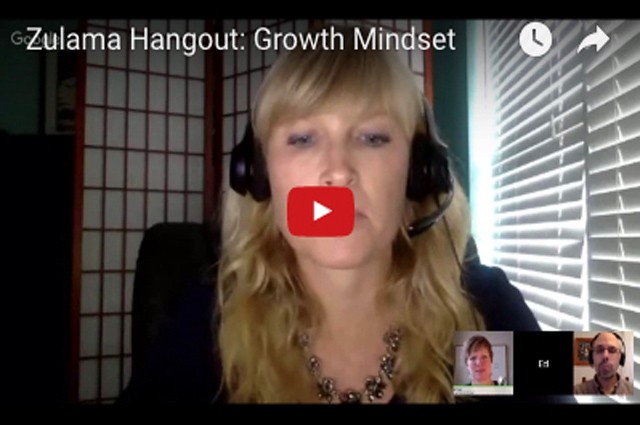With fear in their hearts, so many people view math as a series of complex skills they'll never be able to understand. The first step in overcoming our fears is understanding why we have them in the first place.
There's just something about math. In our society, success in math is frequently equated with being smart, studious, talented, or just downright nerdy. Many people think there is a mysterious "math gene" and you either have or you don't. What's more, people believe that if they don't have the math gene, their kids won't have it either. Therefore, this misconception is perpetuated down through the generations.
How did we get to this stereotypical misconception? Looking to history reminds us that the Cold War in the 1950's kicked off a Space Race between the Soviet Union and the United States. We made a collective decision, as a society, that we needed to win this race, and only the best and brightest would do in our space program. We excluded women and people of color because of discriminatory and false beliefs that they were less capable.
As competition increased between these white men, cooperation decreased. Doing math well became equated with speed, perfection, and natural-born talent. Although the USSR beat the US with Sputnik and also put the first human in space, the US won the honor of landing the first human on the moon. We established ourselves as a nation to be reckoned with – a first world country capable of great technological advances. But at what cost?
Let's look at the statistics now. America has the second highest college dropout rate in the world. While 55% of students who enter college on grade level in math will graduate within 6 years, 65% of students who have to take remedial math will drop out. These are the kids who have always struggled, and are under the erroneous assumption that because they haven't learned math quickly or easily, they must not be meant to do it at all. Ultimately, this becomes a self-fulfilling prophesy. If they think they can't do math, they avoid it, so it doesn't expose their faults. And then, avoiding math is the very thing that makes them fall behind.
So how can we change this culture we've unwittingly created? How can we teach children that math is about thinking and reasoning, persevering and persisting, critiquing and tinkering? Math is not a race! Doing math fast does not mean you are doing it best. Some people need more practice than others, some people need concrete or real-life examples, some people need more time to process complex ideas, and that is JUST FINE. How can we get children to overcome their fear of math and take risks that are so necessary to conceptual understanding?
Here are a few ideas:
· Create a supportive classroom culture. When students ask for help or hints, one option is to refer them to a classmate. This creates a classroom environment where not knowing something is de-stigmatized because they can all take turns being experts and building confidence. Strategically call on different people to answer classmates' questions so that a select few don't become the stars who seem to know it all. Sharing the responsibility to teach each other creates a feeling that we are in this together, creating a learning community. What about if kids just give each other answers? Take the time to explain the difference between sharing answers, which is not helpful in the long-term, and sharing strategies, which is.
· Normalize mistakes. Use techniques such as My Favorite No and Number Talks to get kids to analyze their thinking, understand that attending to mistakes is how we learn, and recognize the difference between sloppy mistakes and stretch mistakes. It's important to note that sloppy mistakes are often a hurdle to a "right" answer, whereas stretch mistakes are when we're pushing ourselves through challenging work to make new connections.
· Make your own mistakes, and model a growth mindset reaction. Nobody likes to make mistakes; even the most growth-minded individuals among us. When you have 25 faces watching you do it, it can be embarrassing or humiliating. Use those times as a teachable moment with self-talks. "Wow, that was not what I expected. Let me see where I went wrong." Embarrassment and fear over making mistakes hinders risk taking in math, so normalize those emotions with more self-talks. "Wow, that was embarrassing, but I'll survive. I'm going to take a deep breath. Ok, let's look at the mistake I made to see what I can learn from it."
· Teach about brain plasticity. Kids who learn how to restructure their neural pathways through deliberate practice do better in math. When teaching something new and challenging, tell your kids they are about to develop a stronger, denser brain! When they're leaving for the day, remind them that the connections they made between their neurons today are fragile – in order to strengthen those connections and get smarter in math they have to go home and practice, even if (and especially if) it feels very difficult.
· Praise their process. Praising right answers only solidifies the fixed mindset in math – that you either have it or you don't. Instead, praise the work, the effort, the focus, the determination, the multiple solutions methods, and all of the bits and pieces that went into that right answer. Ask what strategies were used and praise creativity and guess-and-check methods rather than right answers. Kids will catch on that math is not about having a right answer, or memorizing a formula, or having a math gene, but instead it is about observable actions that anyone can take. And eventually, those actions result in right answers!
Undoing decades of fixed mindset practices in our math classes will be a challenging task. Many teachers continue to drill on facts at the expense of conceptual understanding, and this sends the message that doing things quickly and easily is what is valuable. Students internalize these beliefs. However, these are beliefs that can be changed! They are not genetic traits like height or eye color. When we can shake the foundation of beliefs, the behaviors and outcomes we want to see will follow. And then maybe we'll change that stereotype of math nerds and replace it with one of math heroes.
Do you have any suggestions for changing stereotypes about who can excel in math? Tell us more in the comments!








